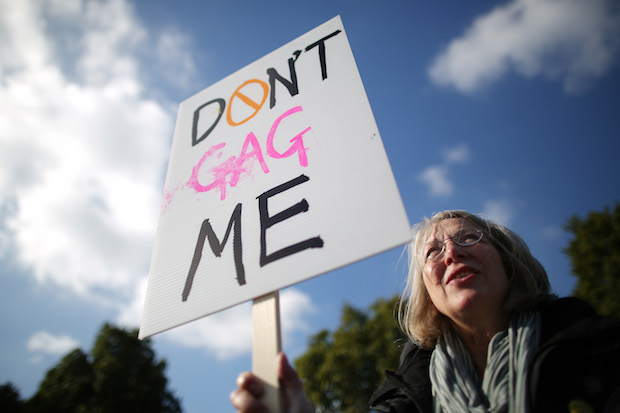Index on Censorship defends free speech and debate for all – so we defend Nick Cohen’s right to write a blog highly critical of Index. The problem is, however, that what he wrote was wrong, both in broad outline and finer detail. As a consequence Nick threatens to undermine the very cause that he claims to hold most dear.
Index is not ‘falling apart’ nor is it even ‘in crisis’. In common with many other organisations in the charity sector it found itself, last year, facing a shortfall in funding. There are complex reasons for this but one of them, ironically, may be due to the very opposite problem to the one Nick suggests. Index almost alone among similar organisations, took the position after Leveson that we should campaign against state involvement in the regulation of the press. This almost certainly cost us donors and continues to be a highly controversial position, as those attending last week’s journalism conference at the LSE may be able to testify.
The result of the shortfall was a retrenchment and some redundancies, inevitably involving very valuable and respected staff members. This was painful and necessary but there was no other credible way of safeguarding Index’s position. The financial outlook for Index is now much more robust. But even while this process was going on Index staff, together with our many regional correspondents and freelance contributors to our website and magazine round the world, were highlighting and taking on censorship in dozens of countries.
Last week, before an audience of 260 people at the Barbican in London, our 2014 Index Freedom of Expression Awards celebrated 17 brave and extraordinary nominees and hailed the four winners of our awards, from Egypt, India, Pakistan and Azerbaijan, covering journalism, advocacy, arts and digital freedom. Index’s website recently hit its highest audience figures and our social media followership continues to grow strongly.
A look at Index’s website would show Nick that Index has strongly defended Edward Snowden, demanded with partners from around the world an end to mass surveillance and joined in judicial review of David Miranda’s detention – under the UK Terrorism Act. It has stood up to internet censorship and restrictions whether those be David Cameron’s domestic push for filters in the UK, and higher criminal penalties for ‘offensive’ posts, or Turkey’s attacks on Twitter and YouTube.
Perhaps most wounding, Nick accuses Index of abandoning underground journalists in Belarus. This is just not true. Index did take the strategic decision over a year ago that it would extend its international reach and editorial on authoritarian regimes – from Vietnam to North Korea to Egypt, Turkey and Zimbabwe amongst others. In doing that, we decided to retain a strategic focus on Azerbaijan but to end our focused project on Belarus. That small project spent just under £1,000 in the last year on commissioning several freelance writers on Belarus, many of them based outside Belarus – in the Baltics and Austria. It was very good work but to suggest we have abandoned journalists who relied on us is simply (though theatrically) inaccurate.
Index is grateful to all our financial supporters – large and small. Nick claims a body called ‘Fritford’ stopped funding Index. This is doubly inaccurate. A brief Google search would show that the organisation concerned is Fritt Ord (meaning ‘free word’ in Norwegian), one of the leading international freedom of expression foundations. Fritt Ord remains one of our main financial donors and we are hugely grateful to them for their continuing support.
Nick also claims that the board, in a fit of panic, pushed the departing CEO, Kirsty Hughes out of her job because the editor of Private Eye, Ian Hislop, had threatened to resign as one of our patrons. This is a complete fantasy. Hislop had some months earlier considered publishing a piece on Index’s financial problems and had offered to David Aaronovitch to resign as patron if this was problematic – Aaronovitch assured him there was no reason to resign even if publication went ahead. In fact Hughes’s decision to resign was hers alone, and was not something the Chair or board either wanted or sought. There are, unfortunately, several similar errors in the piece but it would be tedious to go through all of them.
Life is hard enough as it is for freedom of expression charities, because though many pay lip service to such freedom, they often balk at the reality of it. It is doubly hard when friends of free expression, as Nick is, are so careless with the reputation of others who labour in the field. But we won’t insist on an apology. Rather we invite Nick to visit Index, talk to its staff, and find a way of contributing directly to the work that we do.
David Aaronovitch is Chair of Index and Kirsty Hughes is CEO of Index






Comments